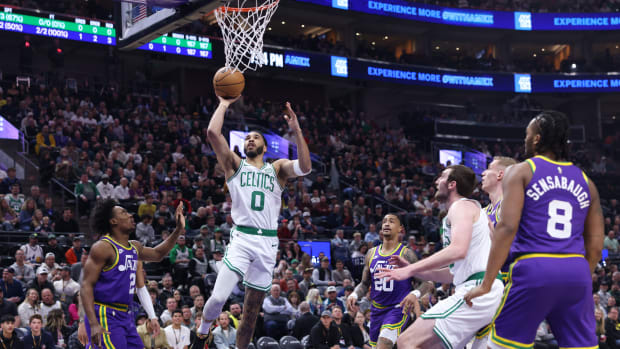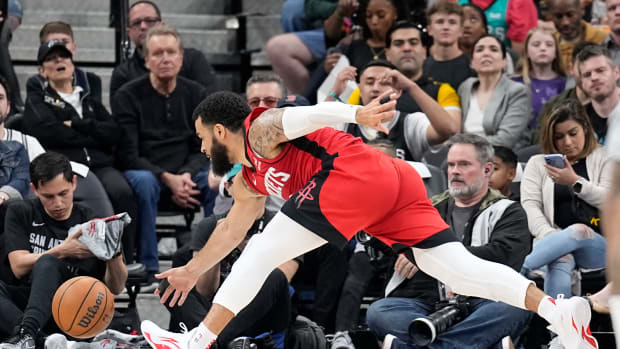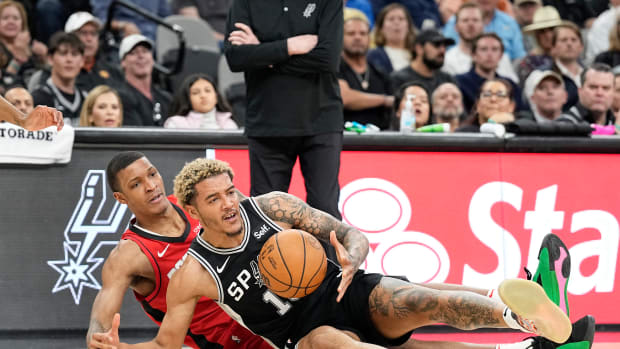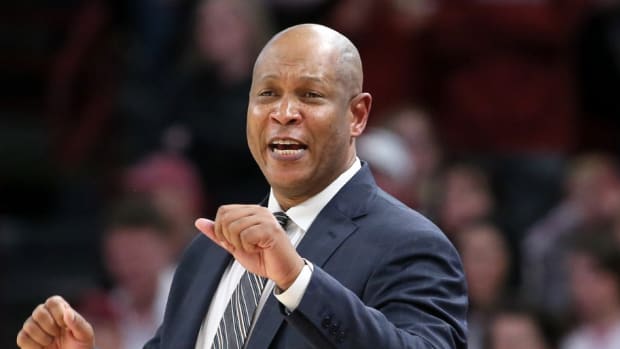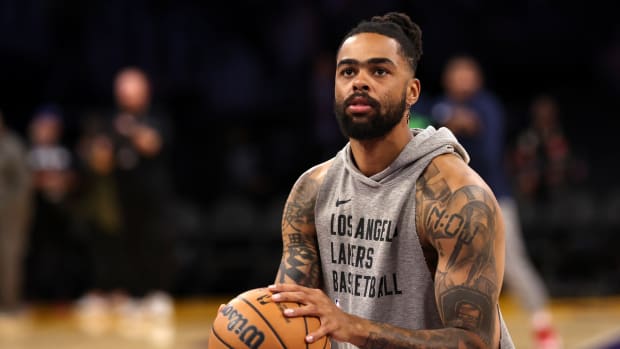When Sports Stopped
Where were you on Wednesday when the news broke?
I was at the YMCA, coaching my 11-year-old daughter’s basketball team, the Porcupines. Afterward, I passed another youth coach on the stairs.
“It sucks they canceled the season,” he said.
“Well, at least we got in one last practice,” I responded.
He stared. Then it dawned on me: he wasn’t talking about youth hoops. I grabbed my phone. And there, in real-time, it played out. The surreal scene in Oklahoma City—the team trainer sprinting onto the court, Chris Paul retreating to his bench, Rudy Gobert announced as “sick”—followed by Mark Cuban’s televised double take as the NBA announced it had postponed its season, becoming the first major American league to do so and triggering a domino effect that effectively cleared the calendar of sports for the foreseeable future.
Across town, another basketball coach, one of perhaps slightly different distinction, had spent much of the day trying to figure out what to tell his players. A few hours earlier, the Warriors had become the first NBA team to bar fans for public health reasons, meaning that their Thursday night game against Brooklyn would be played in virtual silence at the Chase Center. Steve Kerr’s challenge: how to prepare his team to play in what would feel, for all intents and purposes, like a scrimmage.
Around 6 PM, he spoke to Warriors GM Bob Myers, who filled him in on a recently-completed NBA owners’ conference call, in which representatives from all thirty teams weighed in. The NBA’s mindset going into the call was to find a way to safely finish the season, according to league sources. The overwhelming majority of owners on the call believed that the best course was to continue the season in arenas played without fans. The league planned to decide on a course of action by Thursday morning. But as Kerr recounts Myers relaying to him: “The one thing that could put it over the top is a player testing positive, because if that happens, then everything has got to shut down.”
Fifteen minutes later, the Rudy Gobert news hit. At the time, Kerr was live on the radio, talking with local hosts Tom Tolbert and Rod Brooks. Instantly, his phone lit up. Alerts from ESPN. Assistant coaches pinging him. “Literally in a day it went from, this is going to be so weird playing in front of no fans to, less than 12 hours later, the whole season was suspended,” he says.
The Warriors, like the Porcupines, were shocked. For many Americans, sports are how we mark our lives. Drive your kids to practice. Watch the game on Saturday. Get out of work for March Madness. Complain about the Knicks. And yet now sports are gone, at the very moment they could not seem both less important and a more welcome diversion.
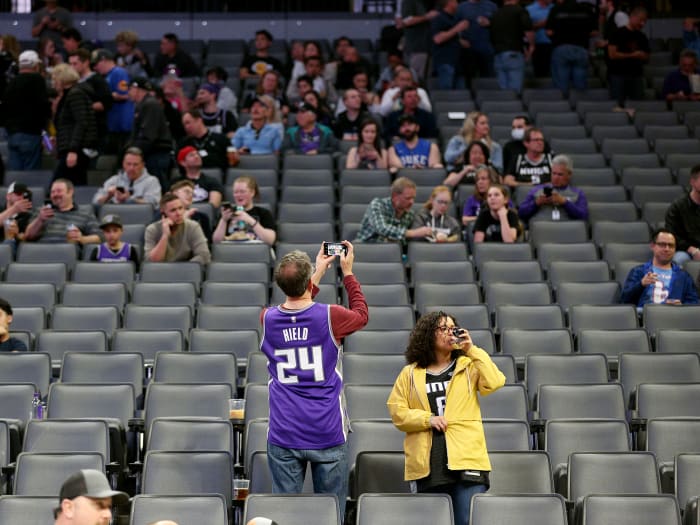
The Pelicans-Kings game in Sacramento was canceled on Wednesday night after the NBA decided to suspend its season.
Cary Edmondson-USA TODAY Sports
***
In retrospect, I’m not sure why I, or anyone, was surprised. Wednesday morning, the World Health Organization had declared a global pandemic. Already, the stock market had crashed and crashed again, #CancelEverything had trended, and Dr. Anthony Fauci, director of the NIH's National Institute of Allergy and Infectious Diseases, had warned against sporting events. And yet, if you were fortunate enough to live in a community not yet severely impacted (as I am in Berkeley), the virus still seemed like something looming, not yet real. Mark Cuban described it as “out of a movie.” Indeed, there’s a reason “Contagion” is a top streaming rental in America right now.
Maybe what was jarring was the speed with which reality shifted—from the world as it is to the world as it was. The coronavirus first edged into the news in late December. We’ve been hearing about it for the better part of the year. Still, as recently as March 2, the NBA’s version of taking action was recommending players fist bump rather than shake hands. Then, in the span of two hours Wednesday night, America learned that Tom Hanks and an NBA All-Star tested positive. With that, all remaining illusions shattered: Even movie stars and athletes get it. Even really rich people get it. Any of us could get it. Of course we shouldn’t play games in major arenas. Instead, we should be reading updates, and helping those impacted, and following health protocol. Doing what we can to flatten the curve and buy time.
Still, sports have often served a purpose during such times. Often, they are framed as a healing or unifying element. A place to gather and commiserate and find common purpose, whether it was a team mourning the loss of a teammate—think of Hank Gathers—or 9/11.
That’s why I called Kerr. I figured if anyone in sports could put this in perspective it might be him, a man who lived in Beirut, who is the son of academics, who can view it through the prism of both insider and outsider. Like many of us, Kerr says he’s trying to grapple with what’s going on. His mother is older. She’s doing fine, but he worries. His family and the team follow best practices: Leave doors open so you don’t need to touch the doorknob. Be vigilant for symptoms. Lots of hand-washing and Purell. He says no Warriors players have been tested but all have been briefed regularly by the team doctor. On Thursday afternoon, the team met at the facility at 3 PM, after another owners and GM’s conference call. Myers and Kerr briefed the players on topics that now seem mundane: finances and logistics and whether or not they’ll practice or resume the season or go right to the playoffs. For now, the team waits until Monday, when, according to Kerr, the league will update them on next steps. Until then, like so many of us, they wait uncertainly, unmoored from the usual rhythms.
“I was trying to compare this to anything we've ever been through and it is almost impossible,” Kerr said, speaking by phone on the drive back from Warriors facility last night. “For the shock value, the only thing I can think of is 9/11. I remember that morning, after I went to my kids’ school to check on them, I went and shot baskets because it was cathartic and I remember watching the World Series a week later.” He paused. “That’s one of the great things about sports. You turn to it when you need an escape and you’re going through a difficult time and so this is pretty unique when sports are specifically turned off. Obviously, there are way more important things right now, people’s health being number one and people’s livelihood and jobs number two. I don’t think anyone’s feeling sorry for themselves because they can’t watch sports but it’s just weird. It’s a strange vibe not to go home and turn on a game just to escape.”
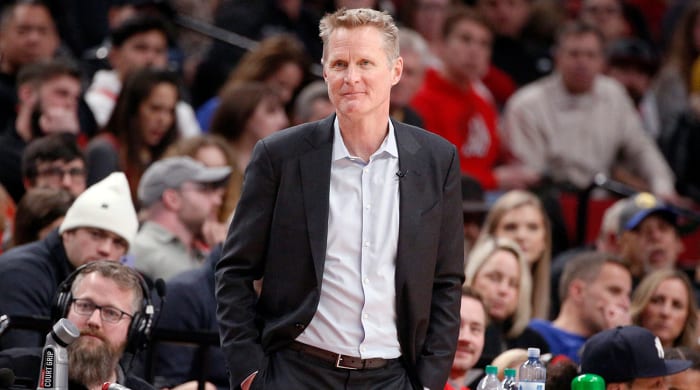
Kerr's Warriors anticipated playing before an empty crowd at home, until the NBA suspended the season.
Soobum Im-USA TODAY Sports
It’s easy to magnify the importance of games but also easy to diminish them. If nothing else, they provide a constant in a world short on them, especially right now. When I underwent hip surgery a few years back, I timed it to the first Saturday of the NBA playoffs so I could spend my days laid up, watching. I consider regular pick-up hoops to fall somewhere between exercise and therapy. As a family with two middle-school-aged daughters, our schedule revolves around practices and clinics and games.
For millions, seasons delineate by sport. If we gotta be holed up, we can at least watch March Madness, right? Many of us assumed these guideposts would continue, even if logically we knew they couldn’t. Of course an NBA player would eventually be infected. Of course more important realities would intrude, for, after all, sports are played by human beings.
Now, over the last 48 hours we’ve seen nearly the entirety of athletics shut itself down—save the Olympics and a couple of hold-outs or out-of-season leagues. On Thursday, Major League Baseball announced it was suspending spring training and pushing back the start of the regular season by two weeks or more. The NCAA canceled March Madness. The NHL and MLS suspended seasons. Professional tennis, one of the first to react when scratching Indian Wells, remains on hiatus. A second member of the Jazz, Donovan Mitchell, tested positive. Charles Barkley announced he didn’t feel well and is self-quarantining while he awaits results of a COVID-19 test. Meanwhile, the ripple effects played out. College seniors who’ve spent their lives preparing for one final playoffs will have to move on, just as the fifth graders on my basketball team will move on, just as so many will miss out on so much this spring.
Of course, this is all trivial and even weird to discuss in the perspective of life and death, of a global pandemic, or an uncertain reality for so many Americans. Of course suspending games is the right thing to do, and probably should have been done even sooner. But nonetheless it adds to the heartbreak and disruption. The feeling that the world as we knew it no longer exists.
Additional reporting by Chris Mannix.






























